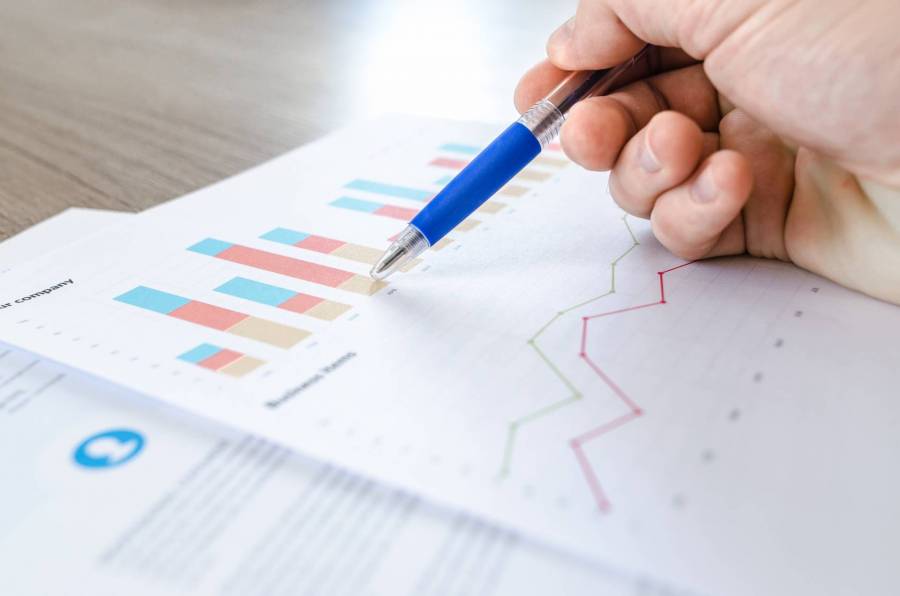Finding complex solutions to financial challenges has become achievable with advancements in technology. Practitioners are daily seeking ways to use computational applications to offer modeling, forecasting, and robust trading solutions in the financial sector. Here are five ways artificial intelligence technology is transforming the financial markets.
Notably, the cutting-edge artificial intelligence technology is mainly transforming the financial markets.
Understanding AI Technology
Most people commonly use AI and automation terms interchangeably, but the truth is that one does not necessarily mean the other. Typically, the automation process involves using computer systems to perform tasks repetitively.
Repeating tasks does not necessarily mean that AI technology is at play, although AI mainly involves automation. Also, the fear caused by unrealistic futurists who paint a world where computers run things on their own preferences is unfounded.
So, what is artificial intelligence?
Artificial intelligence is a pattern-emulating technology that automates predictive or repetitive tasks for better or easier performance. As technology advances, AI is slowly becoming part of human consciousness. Many people are entirely relying on AI to accomplish tasks easily, effectively, and more productively.
Many people still speak of AI as futuristic. However, the technology is here, with us and it’s being used. Already, there are sectors, such as healthcare, environmental, and transportation, which are already using robots in automating most of the jobs.
Who hasn’t heard of the innovative self-driven vehicles that have revolutionized the transport sector?
More so, self-driven trains are expected to take the notch a little higher. Even socialization will soon be affected as some people make and keep robotic friends. Why should the financial sector be an exception?
How AI Technology is Transforming the Financial Markets
Foremost, it’s good to mention that there are continuous advancements in technology, and the revolution cannot be limited to the discussion below.
Nonetheless, here are 5 main ways artificial intelligence is transforming the markets.
1. Enhancing Risk Management and Decision Making.
Creating effective investment portfolios requires sound judgment. The traditional approach of leaving this delicate task to individuals whose judgment could be impaired is unsustainable in the modern era.
To err is human = human is to error.
With AI technology, sophisticated algorithms are used to model risk management scenarios, ensuring only rational decisions are taken. AI neural networks, contrasted to conventional methods, are effective and top-notch in performing risk management.
2. Enhancing Fraud Detection.
The financial sector is susceptible to fraud, and the transactions in the financial markets are no exception. In Artificial Narrow Intelligence (ANI), a distinct area in AI research, computing systems are routinely used to detect patterns in data.
Since we are accustomed to habits, we tend to be sticklers to routines, and any slight change could signal an abnormality.
For instance, if someone transfers a large sum of money, something that is not in their normal way of doing things, AI could detect that as a threat, even giving the geo-location details of where the transaction is taking place.
This is possible because of modern AI technologies that can detect patterns in raw data and identify abnormal behaviors.
3. Catapulting Chat Agents and Client Advisory Systems.
Clients are constantly making financial transactions and need agents and advisors to make recommendations for sound spending outcomes. AI robotic-advisors that give handy advice is proving to be beneficial to the industry.
For example, they can study a user’s spending habits and advise them on how to use their credit card, balance their budget, and so on. AI technology is allowing for the development of wise personal assistants that utilize client data to make sound advice on spending habits before completing transactions.
Most ecommerce institutions have introduced chatbots that help customers in navigating products. Nowadays, it is difficult to tell whether customers are talking to a bot-driven AI or a real person.
Such assistance improves their relationships with the institutions—even without human intervention.
4. Enabling High Intelligence Trading.
AI technology is currently used to create intelligent trading systems capable of making consistent profits in the financial markets—without complaining of getting tired. AI robots can be trained to learn from their mistakes and avoid making the same mistakes in the future, leading to increased accuracy of trading decisions.
For example, in the forex trading industry, AI-powered robots are currently used to identify market patterns and make forecasts with increased accuracy.
Consequently, this can reduce the most common forex trading mistakes.
5. Enhancing Blockchain Transactions.
The blockchain technology is truly revolutionary, and AI-blockchain mix is poised to cause major disruptions in different sectors, including finance. The two giant technologies blend each other and can greatly benefit one another.
The blockchain technology is lauded for its ability to enhance transparency and build trust in peer to peer transactions, something which can improve the security of AI systems. On the other hand, AI-infused with blockchain can lead to faster and cheaper blockchain.
AI-trained algorithms can efficiently verify blockchain transactions, instead of relying on miners who are prone to mistakes. We see that AI can enhance efficiency in blockchain systems by optimizing data management processes and improving mining processes.
Wrapping it up.
There’s always a good and bad side of things, and AI is no exception. If used incorrectly, artificial intelligence can cause unprecedented mistakes, but if properly used, it will amplify the benefits, especially in the financial markets.
After all, he who loses money loses much.

















